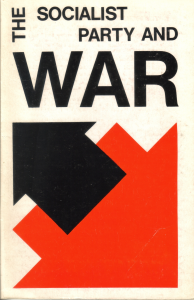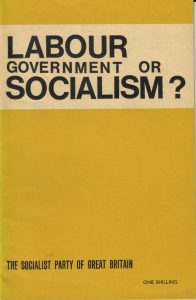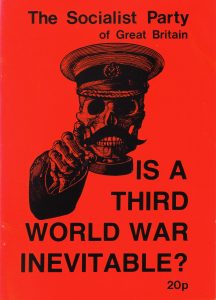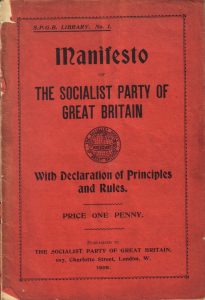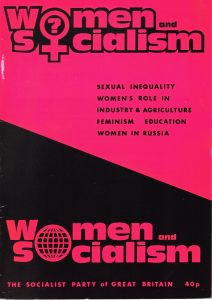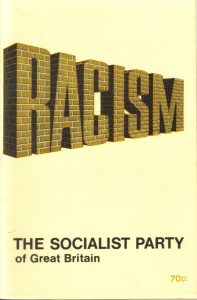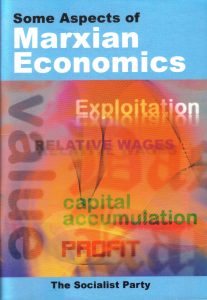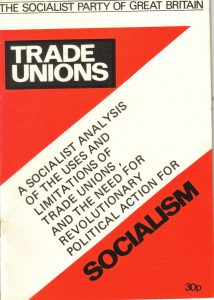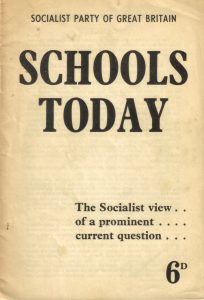Preface
We published a pamphlet War and the Working Class in 1936 and a more detailed study in 1950, with the title The Socialist Party and War. Both are now out of print. The present publication is a revised edition dealing with more recent events and developments.
Since the formation of the Socialist Party of Great Britain in 1904 many changes have taken place. Armaments have become more costly and vastly more destructive. Old empires have shrunk and been replaced by new ones and new nations have been formed, all prepared to wage war. Two world wars led to the creation of, first, the League of Nations and then the United Nations, both supposed to be dedicated to the preservation of peace, and there have been scores of disarmament conferences and anti-war campaigns, all of them utterly futile as a means of preventing war. Smaller wars have continued and a third world war is an ever present threat.
Read more "Book Review: ‘A World Without Money or Politicians’"
Foreword
This pamphlet tells you what socialists think of Labour government – not only the Wilson government which entered office in 1964 but all Labour governments past, present and future.
Read more "Book Review: ‘A World Without Money or Politicians’"
Is a Third World War Inevitable?
Introduction
Each day it becomes more obvious that mankind must choose between the security of a peaceful society, which only conscious action can bring about, and the insecurity of militarism which is an inherent part of today’s society, the ‘civilisation’ of the bomb and the dole queue.
There are many responses to the threat of war, from the’ Apocalypse Now’ hysteria of those who allow emotion to overcome reason, to the view expressed by a politician like Mrs Thatcher who, when opening Britain’s most advanced torpedo factory , said that such weapons of destruction would serve to defend ‘the British way of life’ (Guardian, 11 April 1981). Those who would have us march round in circles pleading with leaders to ‘ban the bomb’ and those who urge us to sit back in our armchairs and have faith in the wisdom of governments have in common an ignorance of the cause of war and social insecurity.
Read more "Book Review: ‘A World Without Money or Politicians’"
Fellow Members of the Working-Class,
In bringing to your notice the aims and methods of The Socialist Party of Great Britain, and in order that the reason for the existence of the Party may be clearly understood, it will be necessary to give a short survey of the position of our class under existing society, and a sketch of the historical development which has resulted in present conditions.
Read more "Book Review: ‘A World Without Money or Politicians’"
Introduction
Sexism is a word that has entered our vocabulary only fairly recently although the concept to which it refers has been around a lot longer. It means discrimination against women for reasons of gender alone. What it means in practice can best be illustrated by an outline of what many women in recent years have seen as the female role in contemporary society.
Read more "Book Review: ‘A World Without Money or Politicians’"
Preface
Some people claim that human beings can be divided into races on the basis of physical characteristics like skin colour, and racism is the theory that one group of people, identified in this way as a “race”, is superior to another. Racism results in hostility towards the group thought of as inferior, the practice of discrimination and persecution, and in some cases it has led to genocide.
Despite the fact that there is no evidence to support racism it continues to cause suffering for those who are its victims. Today, as in the past, different ideas and theories have been used to support racism, and different groups have been singled out as the victims of racist oppression.
Read more "Book Review: ‘A World Without Money or Politicians’"
Preface
The Marxian analysis of society and its development – historical, economic, political – will not die, nor go away, nor even lie down. Today, over a hundred years after the publication of the first volume of Capital, the interest in the ideas of Karl Marx is wider than ever.
There can be no reason for this, other than that the Marxian analysis is still relevant. It alone provides a consistent, comprehensive and applicable picture of the origins and development of capitalism and of how it must be replaced by Socialism.
Read more "Book Review: ‘A World Without Money or Politicians’"
Foreword
This pamphlet is directed to all workers-unionists and non-unionists alike. Membership of a trade union does not determine whether or not you are a member of the working class. Workers are an economic unit, because they work for a wage or salary. They are compelled to sell their mental and physical energies and in the process are exploited, inasmuch that they produce a greater amount of wealth than they receive. Our analysis of trade unions, and the position of the workers in the capitalist system, is based upon this theory which is dealt with in detail in Chapter Eight.
Read more "Book Review: ‘A World Without Money or Politicians’"
The Socialist view of a prominent current question
Introduction
It can confidently be said that in recent years education has been more often and more widely discussed than at any time since the public education system began. There is the perennial question of the “eleven-plus” and the clamour for “equality of opportunity”; there are the recurrent alarms about illiteracy, delinquency and blackboard jungles. At the same time, springing up in every city are the great glass- walled hives which are the new schools of the nineteen-fifties, visible symbols of changes which have taken and are taking place.
Read more "Book Review: ‘A World Without Money or Politicians’"
